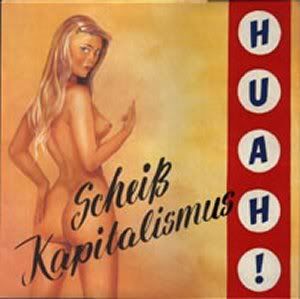- from the back cover.
If your conception of calypso is rooted in the sanitized version of "The Banana Boat Song" that hit the charts back in the ’50s, then this album is bound to be a wake-up call. Calypso music, as in any music of the underclass — be it blues, rebetica or rai — originally dealt with gut-level human interactions.
Behind a seemingly happy-go-lucky beat, calypso kings such as Attila the Hun, Lord Beginner and King Radio told tales that their Trinidadian audience could relate to. There were man-woman stories about sex, love and cheating, mixed in with standard paeans to mother, unhappy riffs on politics, complaints about taxes and colorful gossip about murderers and thieves. In short, nothing that ain’t been talked about in other cultures and times.
What makes this all different, however, are the same things that make all forms of popular music vary from the highbrow arts: culture and its incestuous relationship with language. Slang and its cousin, patois, enrich the possibilities of commentary, but they only do it for people aware of code phrases and how they relate to a shared vision of everyday life.
"Fall Of Man" is a compilation of classic Trinidadian calypso, from the point at which it began to achieve international popularity. Indeed, most of these 25 tracks were actually recorded in New York City, although a few actually were cut in Trinidad. Atilla the Hun (aka Raymond Quevedo) is featured especially heavily, performing or co-performing on ten selections; other notable figures including Neville Marcano (aka the Tiger) and the Lion. The sound, remastered for compact disc, is very good considering the age of the source material.
Tracklist:
1 –The Tiger Sadu Man 3:02
2 –Lord Beginner, Atilla The Hun Young Girl's Touch 3:03
3 –Atilla The Hun Women Will Rule The World 2:58
4 –Atilla The Hun Vagaries Of Women 3:17
5 –King Radio Ribs 3:01
6 –Lord Beginner, Atilla The Hun Women Are Good And Women Are Bad 2:57
7 –The Lion Fall Of Man 2:53
8 –King Radio, The Lion (2), The Tiger Monkey 2:51
9 –King Radio Radio Fifty Wives 3:05
10 –King Radio Warning The Children Towards Mother 2:49
11 –The Executor Hold Up Black Bird Hold Up 2:52
12 –Atilla The Hun Friends 2:34
13 –Atilla The Hun Martiniquen 2:39
14 –The Lion , Atilla The Hun I Will String Along With You 2:59
15 –The Caresser Exploring 2:51
16 –The Growler Calypso Behind The Wall 2:53
17 –Atilla The Hun Not Me With Matrimony 3:07
18 –The Growler Only Foreigners 2:52
19 –The Lion Malicious Neighbors 2:29
20 –Atilla The Hun Woman Is Not The Weaker Sex 2:53
21 –The Lion Death 2:52
22 –The Growler Don't Hide Him Behind The Door 2:41
23 –Atilla The Hun If I Won A Sweepstake 3:03
24 –Mighty Destroyer Mother's Love 3:05
25 –King Radio Man Smart, Woman Smarter 3:03
9 –King Radio Radio Fifty Wives 3:05
10 –King Radio Warning The Children Towards Mother 2:49
11 –The Executor Hold Up Black Bird Hold Up 2:52
12 –Atilla The Hun Friends 2:34
13 –Atilla The Hun Martiniquen 2:39
14 –The Lion , Atilla The Hun I Will String Along With You 2:59
15 –The Caresser Exploring 2:51
16 –The Growler Calypso Behind The Wall 2:53
17 –Atilla The Hun Not Me With Matrimony 3:07
18 –The Growler Only Foreigners 2:52
19 –The Lion Malicious Neighbors 2:29
20 –Atilla The Hun Woman Is Not The Weaker Sex 2:53
21 –The Lion Death 2:52
22 –The Growler Don't Hide Him Behind The Door 2:41
23 –Atilla The Hun If I Won A Sweepstake 3:03
24 –Mighty Destroyer Mother's Love 3:05
25 –King Radio Man Smart, Woman Smarter 3:03
(320 kbps, front cover included)























 01. Missus Beastly - Miles all along the watchtower
01. Missus Beastly - Miles all along the watchtower



